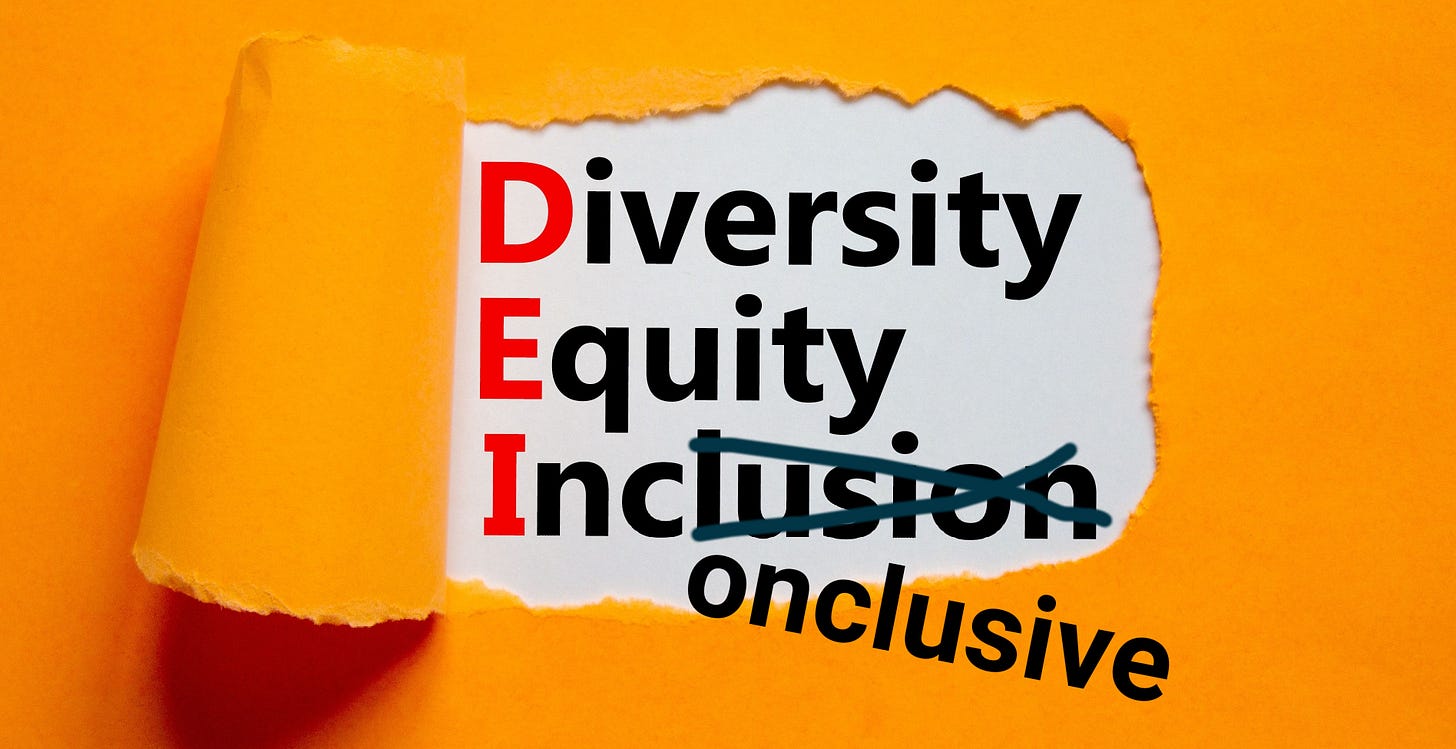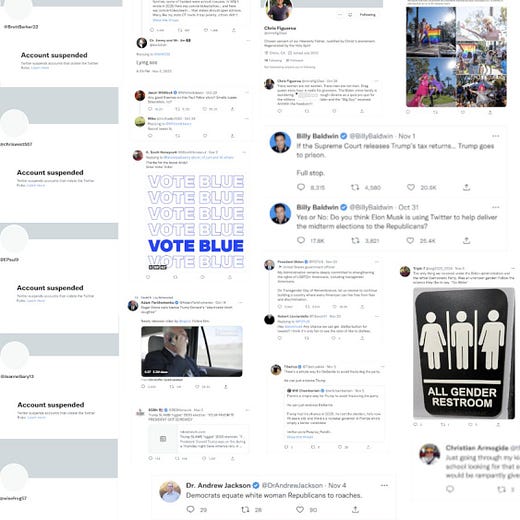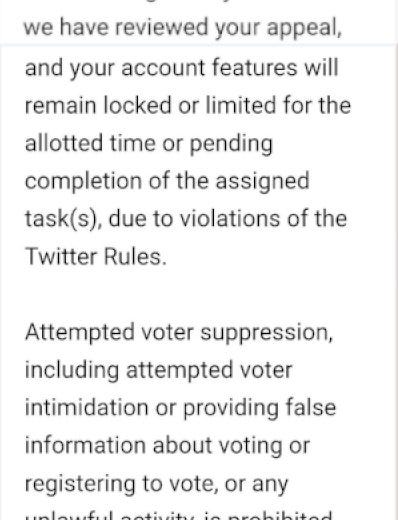E-Pluribus | December 19, 2022
How effective is diversity training? Who knows!; critical theory and science; and debate on academic freedom.
A round-up of the latest and best writing and musings on the rise of illiberalism in the public discourse:
Betsy Levy Paluck: Does diversity training work? We don’t know — and here is why.
Diversity, equity and inclusion (DEI) training has exploded into a multi-billion dollar industry in recent years. How much has it accomplished? Princeton University professor Betsy Levy Paluck who runs the Behavioral Science & Public Policy Center at the school writes in the Washington Post that no one really knows, and based on her experiences, it’s not clear that companies utilizing the training even want to know.
Why don’t institutions evaluate their diversity training programs? Well, take one well-intentioned CEO for a large global corporation who almost got there in 2020. At the peak of the Floyd protests, this CEO sat for a listening session with employees, and in response commissioned more programming from his diversity team. The team hired a new company to train thousands of workers, using a documentary-film-based program that was highly creative but completely untested. After presenting our credentials and a proposal to the corporation’s diversity team, my graduate student and I worked pro bono for months to design a rigorous evaluation of the training.
Capturing the impact of a diversity training might sound impossible, but there are sophisticated ways to do so. One technique is to gradually roll out the program to randomly chosen divisions of the company, comparing trained vs. untrained workers while eventually providing it to everyone. You can track whether the training is followed by more hiring, promotion and retention of underrepresented workers; short of that, you can also measure the behaviors or perceptions of employees around those goals. You can measure how much minority and female employees are heard in meetings by tracking speech and chat contributions with online meeting software. You can also survey employees about racial or gender attitudes among their colleagues, rather than asking them to report their own biases.
We were all ready to roll out a randomized trial of the diversity training. But weeks away from the launch, our agreement with the company fell apart. We’ll never know exactly why the company shut it down, but the company’s lawyers told us that sharing company data was simply too sensitive. This was despite the fact that we agreed to use Princeton’s world-class data security system, to keep the company anonymous, and to report any changes observed as percentages (“a 5 percent increase in hiring women”) instead of absolute numbers (“100 more Black employees hired”). Still, it wasn’t enough. The diversity training went ahead, eating up thousands of employee work hours without any clarity as to its effect.
Read it all.
Lee Jussim & Robert Maranto: How Woke Critical Theory is Destroying Science
Writing for Real Clear Education, academics Lee Jussim and Robert Maranto warn of the damage being done to the culture of free inquiry in scientific fields by political pile-ons. For something called Critical Race Theory, there is some irony in the apparent inability of its supporters to take criticism of the theory and its applications.
In recent years, younger faculty have been socialized into a culture, not of academic freedom, but of “social justice.” Critical Theory, an intellectual offspring of Marxism and Postmodernism, grew via various identity “studies” fields. Critical Theory questions the existence of objective truth, viewing “expertise” as a ruse to gain power, as Helen Pluckrose and James Lindsay explain in “Cynical Theories.”
Critical theorists rarely engage foes intellectually. They rely on Twitter mobs, professional societies, and supportive administrators in ever-larger campus bureaucracies to intimidate their critics.
They used such tactics to attack Klaus Fiedler, editor of Perspectives on Psychological Science. Fiedler accepted for publication the article “Racial Inequality in Psychological Research,” whose lead author was Stanford professor Steven Roberts. Fiedler’s “racist” crimes? Requesting that Roberts make a revision before publication—something most editors ask—and to accept for publication critiques of Roberts’s paper by other scholars, including a coauthor of this piece (Jussim), who are considered white, as is German national Fiedler. (Coauthor Jussim was also called racist for using an analogy from “Fiddler on the Roof,” saying that critical theorists had sold a horse but delivered a mule—although he had no idea that in the early 20th century “mule” was used sometimes as a racial epithet.)
Read it all here.
Michael Bérubé: Rethinking Academic Freedom
In the first part of an exchange of ideas at Heterodox Academy with Ursinus College professor Jonathan Marks, Penn State University professor Michael Bérubé suggests that academic freedom should not be completely open ended and that universities have a responsibility to enforce standards of rigor to prevent dives into intellectual rabbit holes.
Jonathan Marks, in his review of It’s Not Free Speech on the website The Bulwark, takes a different tack: He opens with the argument that there aren’t enough white supremacist professors to warrant concern. Drawing on the most recent survey conducted by the Higher Education Research Institute (HERI), Marks notes that a mere 0.4% of the professoriate identifies as “far right” and concludes, “White supremacy in the academy wouldn’t seem to merit book-length alarm.”
There are two problems with this argument. I’ll take the broader one first: It is true that conservatives have long been outnumbered at universities. Three decades of HERI surveys confirm as much. But over those three decades, the meaning of “conservatism” in American politics has changed so radically as to call into question any survey relying on self-identification. The party of Edmund Burke, Michael Oakeshott, limited government, and free markets is now increasingly the party of Donald Trump, Marjorie Taylor Greene, QAnon, and election denialism, and responsible conservatives like Professor Marks know this well — and lament it, as Professor Marks did in his September 28th Chronicle of Higher Education essay on right-wing student organizations such as Charlie Kirk’s Turning Point USA.
The more pointed problem with the demographic argument is that this discussion shouldn’t be about demographics at all. It’s not a question of whether we trip a wire when white supremacists make up more than X% of the faculty. Presumably, white supremacists are a subset of that 0.4% of those faculty who identify as “far right,” but that’s not the question. The question is whether there is any legitimate intellectual basis for the belief in white supremacy.
That is why Jennifer and I spend a chapter discussing “fitness,” and why we extend our argument to professors of all political persuasions who have nothing to do with white supremacy, like anti-Semitic propagandist Joy Karega, Sandy Hook truther James Tracy, and all-purpose 9/11–Sandy Hook–COVID conspiracy monger Mark Crispin Miller. We believe that academic freedom must entail a standard of intellectual rigor, and that none of these people meet it. . .
Read the whole thing.
Around Twitter
Matt Taibbi’s most recent Twitter Files reporting has involved the collaboration between the FBI and Twitter. Below his some of that reporting followed by the FBI response and Taibbi’s follow up:
Former congressman Justin Amash with some suggestions to make sense of the hash that continues to define Twitter’s rules:
And finally, as Andrew Sullivan commented: “Thank God for the First Amendment.”











